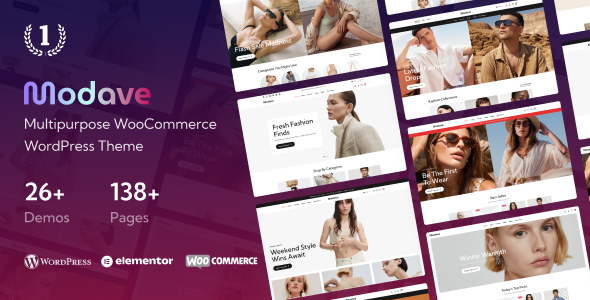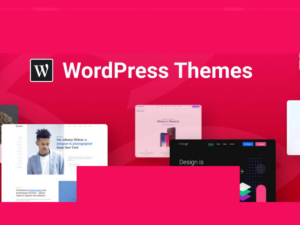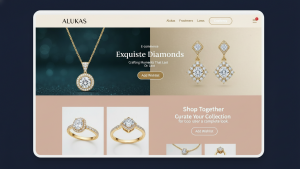For years, the default choice for building an online store with WordPress was a powerful, do-it-all multipurpose theme. Themes like Avada, Divi, or Flatsome promised the world: “Build anything, for anyone, with one tool.” And they delivered, to an extent.
But a significant shift is underway. Savvy store owners and developers are increasingly turning to niche-specific WooCommerce themes. These are themes meticulously crafted for a specific industry or type of product, such as fashion, electronics, furniture, groceries, or courses.
The reason is simple: In a crowded digital marketplace, a generic storefront no longer cuts it. Specialization beats multipurpose because it delivers a superior, conversion-optimized experience from day one.
Let’s break down why.
The Limitations of the “Jack-of-All-Trades” Multipurpose Theme
- The Bloat Problem: To be truly “multipurpose,” these themes must include code, scripts, and styling for thousands of potential features you will never use. This results in slower loading times, which directly harms SEO and conversion rates (a one-second delay can reduce conversions by 7%).
- Configuration Overload: Setting up a multipurpose theme for a specific niche is like using a Swiss Army knife to build a house. You have all the tools, but it’s incredibly time-consuming and complex. You spend days, if not weeks, disabling features, tweaking settings, and trying to make a generic layout fit your unique products.
- Generic User Experience (UX): A multipurpose theme provides a baseline, one-size-fits-all UX. But the shopping journey for a customer buying a high-end watch is fundamentally different from one buying organic coffee or booking a yoga class. A generic theme fails to guide these specific customer journeys effectively.
- Lack of Industry-Specific Features: Need a powerful size guide for your clothing store? A booking calendar for your service? A sophisticated component selector for your PC parts store? With a multipurpose theme, you’re almost always reliant on third-party plugins, which can create compatibility issues and further bloat your site.
Read More : Best Fashion WooCommerce Themes of 2025: Features, Pricing & Sales Performance
The Strategic Advantages of Niche Specialization
Niche themes flip these weaknesses into powerful strengths.
1. Pre-Built, Optimized User Journeys
A niche theme is designed around how people shop for that specific type of product.
- Fashion & Apparel: Themes focus on lookbooks, quick view, size and color swatches, wishlists, and advanced filtering (by color, size, brand, etc.).
- Electronics: They emphasize comparison tables, detailed specification tabs, related accessory upsells, and customer review integrations.
- Furniture & Home Decor: These themes often include room visualizers, color/material swatches, and emphasize high-quality, zoomable imagery.
- Food & Groceries: They prioritize one-click reordering, delivery time slots, ingredient lists, and a fast, simple checkout.
This results in a higher conversion rate because the path to purchase is intuitive and frictionless.
2. Superior Performance and Speed
By stripping out unnecessary code and focusing only on what a specific store type needs, niche themes are inherently leaner and faster. They load quicker, providing a better user experience and a direct SEO boost from Core Web Vitals.
3. Faster Time-to-Market and Lower Development Costs
Why build from scratch when you can start with 80% of your ideal store already built? A niche theme provides a foundation that is already visually and functionally aligned with your industry. This drastically reduces development time and cost, allowing you to launch your store faster and focus your budget on customization and marketing instead of basic functionality.
4. Built-In Features That Matter
Instead of a dozen unrelated features, a niche theme packs a curated set of tools that are essential for its target industry.
- Restaurant Theme: Built-in online ordering, menu management, and table reservation systems.
- Course Theme: Seamless integration with LMS plugins like LearnDash, student dashboards, and curriculum layouts.
- Booking Theme: Native calendar views, service duration settings, and customer management.
This “batteries-included” approach means less plugin hunting and fewer potential conflicts.
5. Design That Tells Your Story
Niche themes are often created by designers who understand the aesthetic and emotional drivers of a specific industry. The typography, color schemes, and layout are chosen to best showcase a particular type of product, whether it’s the minimalist elegance needed for jewelry or the bold, energetic vibe for a sneaker store.
Read more : Top WooCommerce WordPress Themes of 2025: Best Sellers Under $48
When Does a Multipurpose Theme Still Make Sense?
Specialization is powerful, but multipurpose themes aren’t obsolete. They are the right choice when:
- The Store is Truly Multi-Niche: You sell an extremely wide and unrelated variety of products (e.g., both digital software and physical home goods).
- Heavy Customization is Planned: If you have a dedicated developer and a very unique, custom design in mind that no niche theme fits, a lean multipurpose theme can be a solid foundation to build upon.
- Uncertainty About Future Direction: If your business model is still in flux and you might pivot to a completely different product type, a multipurpose theme offers more flexibility.
The Verdict: Fit for Purpose Wins
The trend toward niche WooCommerce themes reflects a broader maturation of the e-commerce landscape. As competition intensifies, competitive advantage comes not from having a website, but from having a highly optimized, purpose-built digital storefront that understands its customers and its products.
Specialization beats multipurpose because it prioritizes the end-user’s experience and the store owner’s ROI over the developer’s theoretical flexibility. It’s a focus on being the best tool for one job, rather than an adequate tool for many.
For most businesses looking to launch a successful, high-converting online store, choosing a niche-specific WooCommerce theme is no longer just an option—it’s a strategic imperative.
Ready to Ditch the Generic and Embrace a Specialist?
Stop forcing a generic theme to do a specialist’s job. It’s time to give your store the focused, high-performance foundation it deserves.
Explore our collection of purpose-built, niche WooCommerce themes and launch a store that’s designed to convert.








